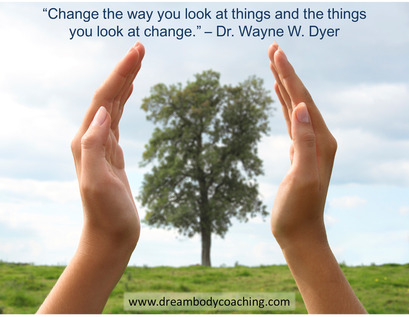Growing up I was inspired by the Dr. Seuss classic, Oh, the Places You'll Go! and still love its timeless message. If I were to write a Dr. Seuss-style book on stories, it would be titled something like "Ahhh...the Stories We Tell Ourselves and the Places They Land Us." Inside you'd read passages such as:
I'm guessing that if someone asked you if you were a storyteller, you'd probably say no. Most of us aren't professional storytellers and don't relate to ourselves as such. And yet, the reality is that we are all really good storytellers. We do it all day, everyday. The question though is what kind of stories are we telling ourselves?
A couple of weeks ago I had an experience that left me feeling angry and frustrated. As I reflected on the experience, I realized that I was telling myself one humdinger of a victim story. In essence, I was telling myself the story that the other person involved in the experience was "the problem" and shouldn't have done what she did. As I analyzed my story further, I realized that under the anger was a sense of powerlessness to assert my own needs and desires. The story I was telling myself was that my needs didn't matter and that I "had" to do the "nice" thing even though it wasn't how I wanted to handle the situation. This was a great ah-ha moment for me and I saw the opportunity to change my story to one that was more empowering and self-honoring.
And yes, that's the great thing about stories, they can be changed! I love this quote by Dr. Wayne W. Dyer, "Change the way you look at things and the things you look at change."
- "Tina Lou Miserable says over and over to herself, 'If Johnny-Once-Dashing really loved me enough, he'd help out around the house.' So, one day she blows up, packs her bags and leaves in a huff."
- "Roger There's Never Enough works super hard day and night, but can't figure out after all he has done, why the power company is about to shut off his lights."
- "Terri-Abllie Krittical to everyone she meets is pleasant and kind, but to herself, the same treatment she doesn't give as self-defeating blows constantly occupy her mind."
I'm guessing that if someone asked you if you were a storyteller, you'd probably say no. Most of us aren't professional storytellers and don't relate to ourselves as such. And yet, the reality is that we are all really good storytellers. We do it all day, everyday. The question though is what kind of stories are we telling ourselves?
A couple of weeks ago I had an experience that left me feeling angry and frustrated. As I reflected on the experience, I realized that I was telling myself one humdinger of a victim story. In essence, I was telling myself the story that the other person involved in the experience was "the problem" and shouldn't have done what she did. As I analyzed my story further, I realized that under the anger was a sense of powerlessness to assert my own needs and desires. The story I was telling myself was that my needs didn't matter and that I "had" to do the "nice" thing even though it wasn't how I wanted to handle the situation. This was a great ah-ha moment for me and I saw the opportunity to change my story to one that was more empowering and self-honoring.
And yes, that's the great thing about stories, they can be changed! I love this quote by Dr. Wayne W. Dyer, "Change the way you look at things and the things you look at change."
Clients come to work with me because something in their life isn't working how they would like it to. And while the individual circumstances are different and unique to each person, at the end of the day, each client has a story (a belief; often housed in the unconscious mind) that is creating the challenging circumstance. Some of the beliefs are passed down generationally, others are picked up from cultural/societal conditioning, and other comes from the client's perception about life events and her/his experiences.
Once again, the good news is that regardless of where the story originated or how many times its been repeated (out loud or in our thoughts), it is, after all, a story, and stories can be changed. And, when we change our stories, our whole world changes too.
My invitation for you this month is pay attention to the stories you tell yourself and assess whether they are producing the result you would like to have. If not, change your story.
With love and gratitude for you!
Dream Body Coach Lorie
www.dreambodycoaching.com
Once again, the good news is that regardless of where the story originated or how many times its been repeated (out loud or in our thoughts), it is, after all, a story, and stories can be changed. And, when we change our stories, our whole world changes too.
My invitation for you this month is pay attention to the stories you tell yourself and assess whether they are producing the result you would like to have. If not, change your story.
With love and gratitude for you!
Dream Body Coach Lorie
www.dreambodycoaching.com


 RSS Feed
RSS Feed
